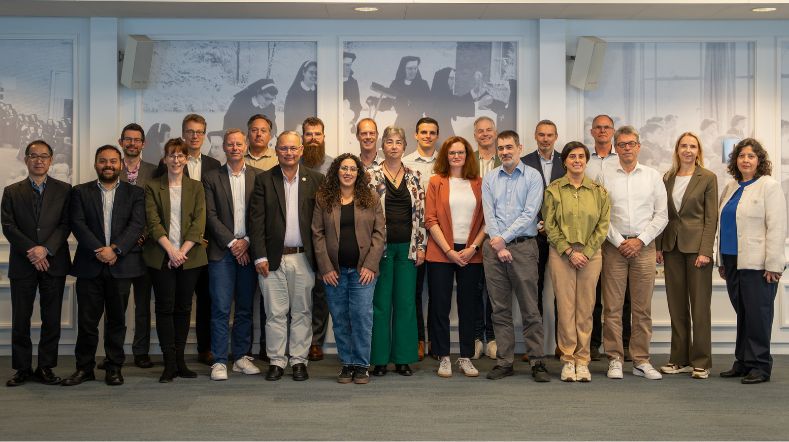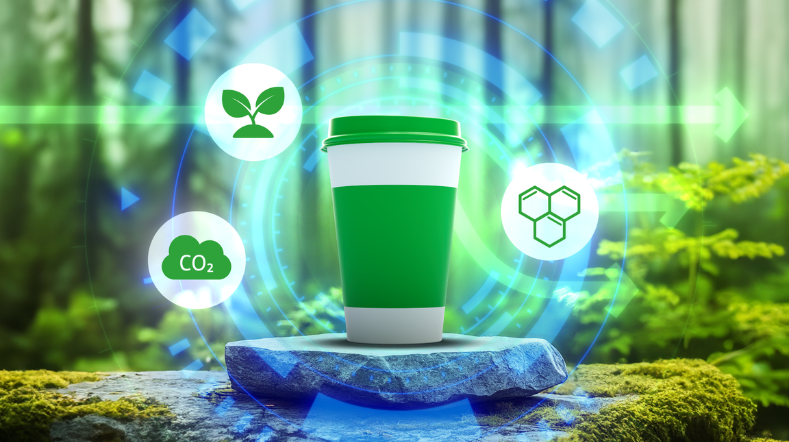
From lab to market: TNO steps up sustainable plastic recycling with dissolution
Plastic waste doesn’t mark the end, it’s the start of something new. At TNO, we’re working towards a future where high-quality plastics can be reused, without compromising on quality. The solution is dissolution: an innovative recycling technology that dissolves plastics, purifies them, and recovers polymers. We’ve just taken the next step in scaling up this process.
From test tube to kilogram scale and beyond
Thanks to the TNO Möbius programme, we’ve developed a method that gets us closer from lab testing to industrial application. With our latest setup, the TNO Möbius LETO, we’re ready to take the next step towards further upscaling and demonstration in industrial environments, together with market parties.
This semi-continuous setup processes plastic waste on a kilogram scale (at TRL 5) and produces purified polymer powder. This allows us to analyse accurately for which applications the recyclate is suitable, from toys to packaging and car parts.
The technology behind the TNO Möbius LETO was born out of the need to recover high-quality polymers from waste streams for materials that were hard to recycle. Because the market is changing, however, we’re also looking at recovering valuable additives, such as an antimony-based compound (a critical raw material) used as a flame retardant. This strengthens the business case and increases the impact.
Collaboration as an accelerator
We’re working with several partners to accelerate circular plastic recycling by harnessing dissolution technology.
In the European project ABSolEU, TNO is working on circular applications for ABS plastics with three brand owners (LEGO, Volvo, and BIC) and others. Now that our TNO Möbius LETO setup has been commissioned, we can start testing for the first time at TRL 5 to process ABS waste from end-of-life vehicles and electronic products.
We’re exploring whether the material recovered meets the quality requirements of the applications they’re intended for, which is crucial for determining the next step in development. This real-life, practical application at TRL 6, or ‘TNO Möbius LETO in an industrial setting’, is being implemented on the premises of a client.
Thereby we’ve joined forces with Royal Dahlman to apply their advanced filtration technology in the TNO Möbius process, and specifically in the filter module of the TNO Möbius LETO. In doing so, we’re accelerating the step towards successful application in the market of high-quality recycled plastics.
We’re also working to recover polyolefins from mixed plastic streams, in collaboration with Braskem. This collaboration is investigating the feasibility and scale-up of the TNO Möbius technology, aiming to produce near-virgin polymers. Again, the focus is on purifying and separating polymers and additives, with applications including packaging.
In our collaboration with Elix Polymers, the focus is on recycling ABS polymers from discarded electronics. Together, we’re exploring how dissolution can be used to recover both polymers and flame retardants. This collaboration targets high-performance applications of recycled ABS polymers, while maintaining material quality and energy efficiency.
Why dissolution?
Mechanical recycling often fails to meet the requirements of high-performance applications, while chemical recycling is costly and energy-intensive. Dissolution offers an attractive alternative:
- High-quality recyclate
- Removal of unwanted or banned additives
- Recovery of valuable substances, such as flame retardants
- Lower energy consumption than chemical recycling
- Suitable for various polymers
- Effective for difficult-to-recycle, multi-material plastic waste
- Selective separation of the desired polymer from mixed streams
Ready for the market
TNO provides a flexible test environment to investigate a wide range of polymers and solvents. Thanks to our open innovation approach, this infrastructure is available to partners seeking to collaborate on circular solutions. We help enable scale-up and implementation through a licensing model.
Thanks to the TNO Möbius LETO setup, we’re ready to collaborate more with the market. We’re now looking for partners to join us in moving towards industrial applications.
Get inspired
Report: Drop-in solutions as an accelerator of biobased chemistry


New routes for sorting and composite separation


HyFINE: Pioneering sustainable routes for specialty and fine chemicals


Webinar: Biobased plastics in a sustainable future


Biobased plasticisers: from compliance to competitive edge




